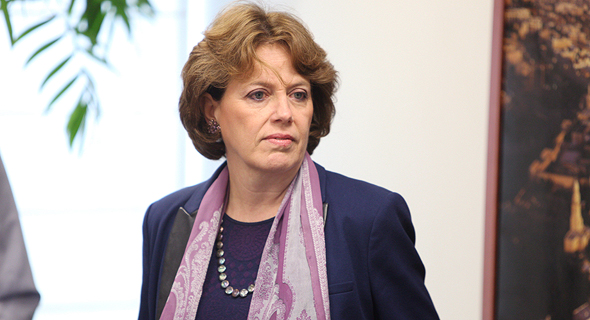Analysis
Explaining Israel’s Interest Raise
On Monday, the Bank of Israel raised its benchmark interest rate, for the first time in seven and a half years, from 0.1% to 0.25%
12:2527.11.18
On Monday, the Bank of Israel raised its benchmark interest rate, for the first time in seven and a half years, from 0.1% to 0.25%. Ostensibly, Israel’s economic environment has been ready for an increase in its interest rate for a while now. The country’s economy is at a historically low unemployment rate, growth rate is adequate, inflation rates have been within the bank’s target range (1%-3%) for the past five months, and a negative real interest rate that has held stable, for the most part, over the past nine years.
 Bank of Israel Deputy Governor Nadine Baudot-Trajtenberg. Photo: Omer Messinger
Bank of Israel Deputy Governor Nadine Baudot-Trajtenberg. Photo: Omer Messinger
For daily updates, subscribe to our newsletter by clicking here.
In October, under former Bank of Israel governor Karnit Flug, the bank’s committee had voted once again against raising the interest rate. Monday’s decision to raise the rate, made under acting governor Nadine Baudot-Trajtenberg, is a matter of timing, Baudot-Trajtenberg said in a press conference.
 Bank of Israel Deputy Governor Nadine Baudot-Trajtenberg. Photo: Omer Messinger
Bank of Israel Deputy Governor Nadine Baudot-Trajtenberg. Photo: Omer Messinger
The inflation rate has been holding steady at 1.2%, and the economy's growth rate fell from 3.7% in the first six months of 2018 to 2.3% in the third quarter of the year. While the inflation has already returned a few months ago to the bank’s set target range, Baudot-Trajtenberg said the committee wanted to see it stabilized. Unemployment rates also remained low, she said, and almost all industry sectors recently saw an increase in average wages.
Related stories:
- After More than Seven Years, Israel Raises Interest Rate
- Government Appoints Amir Yaron as New Governor of the Bank of Israel
- Interim Governor Takes the Helm at Bank of Israel
In the OECD’s latest economic forecast for Israel, published early November, the authors wrote that “the monetary authorities should consider raising currently ultra-low interest rates gradually.”
The shekel has weakened since October’s decision to keep the interest rate at 0.1%, and the bank estimates that the main risk posed by its fiscal policy is the possibility of a sharp appreciation of the shekel. As Israel's economy is very much export-based, too strong a shekel could negatively impact Israeli exporters, who purchase in shekels and sell in dollars. Local consumers, on the other hand, stand to benefit from the new interest rate as the price of imported products is expected to go down.



